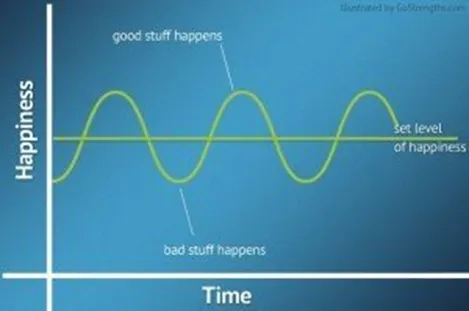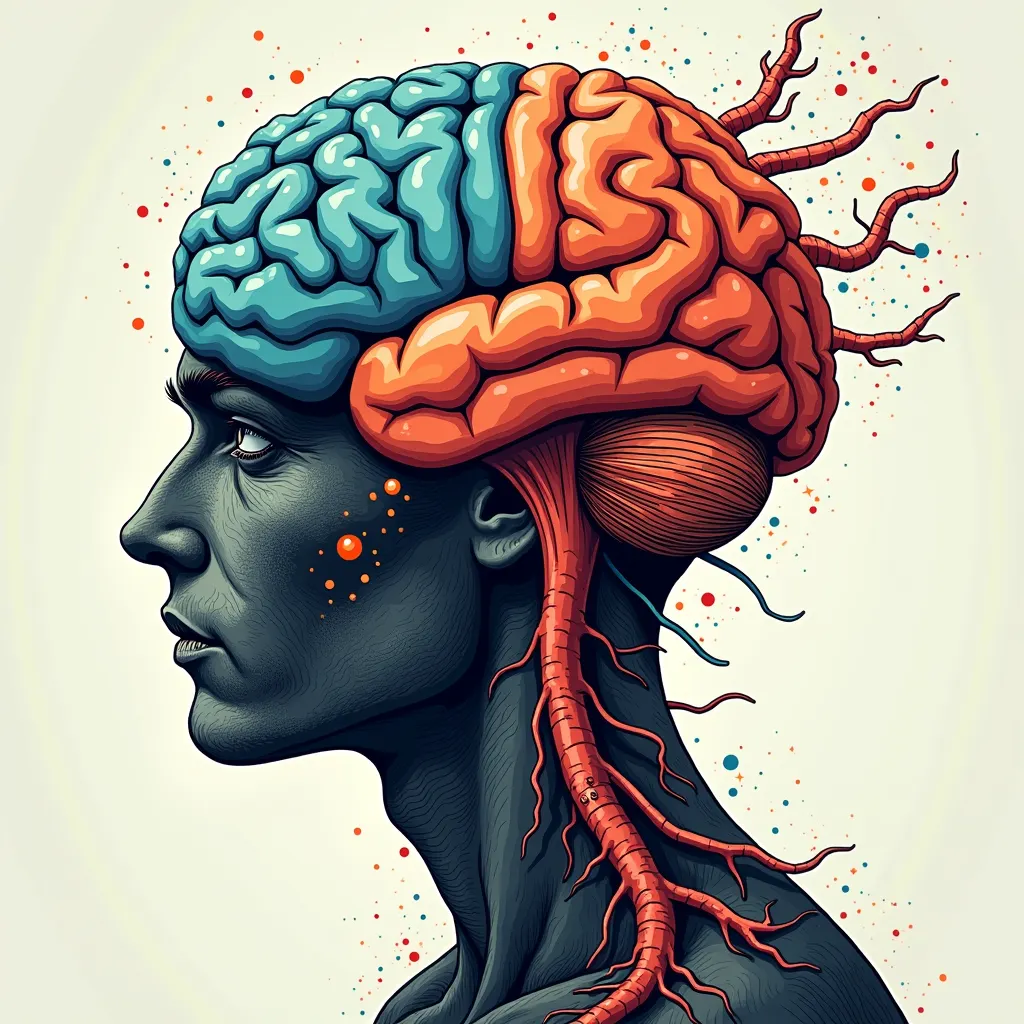

Do you believe you will be happy forever? Does infinite happiness really exist? No happiness lasts forever. I'm not saying this, but Brickman and Campbell claim this as a result of their research in the 1970s, but I have much better news: No pain lasts forever either. What exactly provides this situation is hedonic adaptation. So, what does hedonic adaptation mean?

Figure 1. Hedonic Adaptation Concept (AI Generated)
What is Hedonic Adaptation?
Hedonism, in the field of philosophy, has representatives from Greek thinkers Epicurus and Aristippus (Yıldırım, 2024). In this philosophical understanding, happiness is associated with pleasure. Hedonic adaptation, the hedonic treadmill or in other words the hedonic wheel, returns to the old happiness level after two extreme situations. So what are these two extreme situations? It can be said from good to old level or from bad to old level. Hedonic adaptation is a kind of habituation process. Brickman and Campbell have shed light on the habituation process by conducting the research that laid the foundation of hedonic adaptation theory.

Figure 2. Return to baseline after extreme emotions3
Hedonic Adaptation Theory Research
Brickman and Campbell (1971) conduct their work with some people consisting of two groups. The first group consists of lottery winners and the second group consists of people who accidentally become paralyzed. In this study they conducted, it was observed that both accident victims and lottery winners returned to their old happiness levels, as shown in the research results graph. The happiness level began to return to its old state as time passed.
Due to hedonic adaptation, people always want newer and better things. When people obtain the material or person they want, they experience incredible happiness, but after a certain period of time, they experience a return to their old happiness levels. If we think about ourselves, we buy the latest model phone, we are very happy. While experiencing our hedonic adaptation with our new phone, after a certain period of time when we return to our old happiness level, we realize that a new model has come out. After a certain period of mood depression, our body gets used to this situation, that is, it undergoes hedonic adaptation. This vicious cycle further fuels today's consumer society, directing society to always want better and spend more. This bond is not just a bond between person and object, it also affects human relationships. In fact, research shows us that due to hedonic adaptation, the maximum lifespan of marriages is 3 years. So hedonic adaptation is an adaptation that has the authority to decide both our spouse and our belongings.

Figure 3. Solution Seeking (AI Generated)
So What Will We Do?
Wolynn (2016) says that 50% of human happiness depends on genes, 40% on the individual's perspective, and 10% on external conditions. Although genes have a higher percentage of importance in our happiness levels than other factors, submitting to our fate does not make us a livable lifestyle. Perhaps we have many lessons to learn, many thoughts to think, and some aspects of ourselves that are open to change.
Schaffner (2023) suggests being grateful to be happier; He tells us to appreciate others and try to find something to be grateful for in our lives every day. Additionally, Schaffner (2023) recommends that we can raise our own happiness level by doing good and caring, and learn to be content with what we have by getting rid of the materialistic perspective. At first glance, you might think what's the connection, will I be happy with the thought of someone else being happy in my unhappy state, but when you start putting things into practice, you will realize that things don't work that way. A compliment you give to someone else may not mean anything to you, but it can create very big effects on a person; it can improve their mood, turn a bad day into a good one. You might think I'm exaggerating, but when you have that bad day, you'll agree with me with a small compliment that comes. Goodness and love are things that increase and find you as you share them. It is an undeniable truth of the universe that any good or any evil you do to someone else will return to you in the same way, but this is the subject of another article...
Conclusion
In summary, although our happiness level is pulled down after a certain period of time due to hedonic adaptation, there are always ways to produce solutions. Although according to Wolynn, human happiness comes 50% from genes, the 40% share that falls to us is not a small ratio, we have the opportunity to do our best. It seems possible to take responsibility without hiding behind hedonic adaptation and to live a happy life by doing our best. As Socrates (n.d.) also said: "Happiness is a state that comes with wisdom."

Figure 4. Socrates and Wisdom2
References
1. Doğan, T. (2023, Mayıs 29). Mutlulukla İlgili İyi ve Kötü Haberler. Tayfun DOĞAN. https://www.tayfundogan.net/2020/04/28/mutluluk-mutlulukla-ilgili-iyi-ve-kotu-haberler/
2. Halkbank Kültür ve Yaşam. (2020, Aralık 2). BÜYÜK FİLOZOF VE YAZARLARDAN MUTLULUĞUN TANIMI. Halkbank Kültür Ve Yaşam. https://kulturveyasam.com/buyuk-filozof-ve-yazarlardan-mutlulugun-tanimi/
3. Schaffner, A. K., PhD. (2024, Eylül 16). How to escape the hedonic treadmill and be happier. PositivePsychology.com. https://positivepsychology.com/hedonic-treadmill/
4. Şahinoğlu, D. (2022, Mayıs 27). Hedonik Adaptasyon ve Öznel İyi Oluş- Blogtan Bi'şeyler. Blogtan Bi'Şeyler. https://www.blogtanbiseyler.com/hedonik-adaptasyon-mutlulugumuz-gercekten-kalici-mi/
5. Wolynn, M. (2016). It Didn't Start with You: How Inherited Family Trauma Shapes Who We Are and How to End the Cycle. https://openlibrary.org/books/OL27209353M/It_didn't_start_with_you
6. Yıldırım, Ö. (2024, Mayıs 13). Hedonizm nedir? Hazcılık. Felsefe Hakkında Her Şey. . . https://www.felsefe.gen.tr/hedonizm-hazcilik-nedir-ne-demektir/